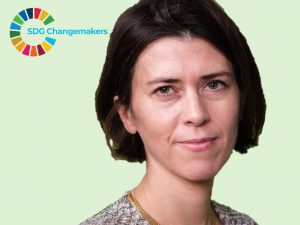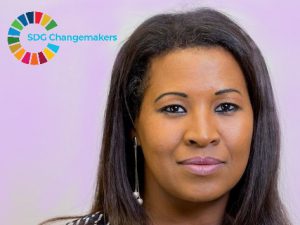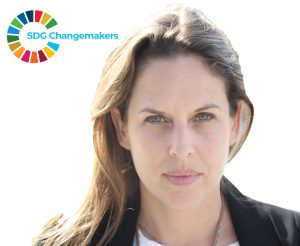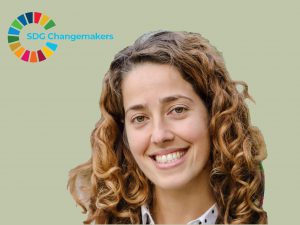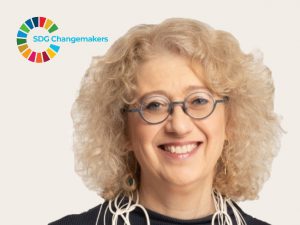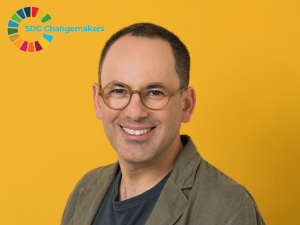Former Head of Societal Challenges Division at the Israel Innovation Authority
SII: Please briefly describe your work
PLE: The Societal Challenges Division focuses on harnessing technological innovation to solving substantial problems in society and the public sector in Israel and worldwide, and on developing solutions for the lack of skilled workers in the high-tech industry by increasing the number and variety of employees in this sector. The division operates according to the double bottom line principle and takes into account the social profit generated by the project, along with its economic value.
I develop and operate programs to harness the hi-tech industry to find solutions for a variety of substantial social and public needs in Israel and to the UN’s Sustainable Development Goals globally. This includes identifying these needs and mediating between them and the Israeli entrepreneurial community by encouraging and creating demand for technological solutions.
SII: Name three principle values that you associate with your work?
PLE:
- I believe very much in challenge-based innovation. We need to be careful not to admire technology for the sake of technology. Technology has the potential to scale up solutions and improve dramatically the life of people worldwide but this will happen only if we put the impact consideration first.
- Inclusion and accessibility must be a consideration in any decision-making. At IIA, when we look at emerging technologies, we ask ourselves whether the technologies are designed to be accessible for all. It should be included in the early stage of planning, otherwise it will be much more difficult to correct later on and it can lead to increasing social gaps.
- Cooperation- moving from the private to the public sector has taught me the importance of cooperation and I believe that partnerships between the public and private sectors and civil society is key in anything we do if we want to have an impact.
SII: What particularly motivates you to make a difference?
PLE: On the one hand, Israel is admired for being a start-up nation. On the other hand, we are lagging behind in many fields and we have tangible challenges to address: growing inequalities, low productivity and inclusion of underrepresented populations in the workforce, a dysfunctional public transport infrastructure which contributes to increasing these disparities, and of course health, energy, food security and climate change –which are global challenges without boundaries which require the commitment of all nations.
SII: What positive impact do you see emerging through your activity?
PLE: The impact ecosystem in Israel is growing and IIA plays a substantial role in developing this ecosystem. When we look for example at EdTech (Educational Technologies), EdTech startups have more challenges raising funds from private investors: their business models are often more complex to define. Their main clients are public sectors which means a longer time to market.
We run a GovTech track – Digital Innovation for Public Sector Challenges, in cooperation with Digital Israel which supports different sectors: digital education is one of them. Our track not only funds the R&D but also encourages cooperation with the education system in Israel. When we look at the Edtech ecosystem in Israel, most of the companies are grantees of IIA. This means that our track is relevant to this ecosystem and addresses a need. There are still many things to be done to encourage this important field to grow but I think we are starting.
SII: Please tell us about your favorite project
PLE: In our impact tracks, we support around 50 new projects every year. I find it difficult and unfair to name just one. However I can say that I like very much our track supporting Assistive Technologies for People with Disabilities that we run in cooperation with the National Insurance Funds. Assistive technologies for people with disabilities have the potential to dramatically improve their quality of life and enhance their ability to lead a healthy, independent and dignified lifestyle, while taking part and contributing to all spheres of society: work, education and leisure. This program has been instrumental in developing a strong ecosystem for accessibility and assistive technologies in Israel, and we see amazing companies developing social solutions in cognition, mobility, vision/hearing and speech enabling and many more.
SII: How coronavirus fight impacted your work?
PLE: During the COVID crisis, many high-tech companies experienced a cashflow crisis due to investments suspension and sales decrease that threatened their life expectancy. Israel Innovation Authority put in place an emergency response which included fast-track grants and a program to encourage institutional investments in Israeli high-tech companies.
In terms of employment, despite the crisis, Israel’s high-tech sector remained relatively stable with increased needs for technological solutions which in turn created demand for employees capable of developing these solutions. The increased demand expanded to other industries undergoing a digital transformation. We saw this as an opportunity to train more people to technological jobs and developed incentive tracks to accelerate this transformation – with a special focus on the integration of women and underrepresented populations in the high-tech sector, populations which had been especially affected by the crisis.
More about Patricia Lahy-Engel
Before joining the Innovation Authority, Patricia ran and developed 3 startup accelerators (“TheHive”) for international entrepreneurs and highly-skilled immigrants, opened and ran the local branch of The Walt Disney Company in Israel, served as a Director in a public company in the Cleantech industry and was a co-founder of FrenchTech Israel which creates bridges around innovation between the French and Israeli ecosystems.
Born in France, Patricia holds a MBA from ESCP (Leading French Business School) and a BA in Hebrew, Jewish History and Israel sociology from INALCO (Institute of Oriental Languages and Civilizations).
She is married to Yair Engel, expert in Circular Economy and representative of ‘Cradle to Cradle’ in Israel, himself a prominent figure of the sustainability and impact world in Israel and mother of two daughters: Maya and Alma.


